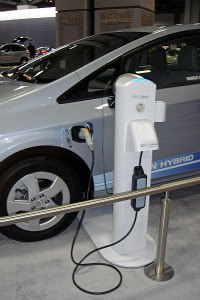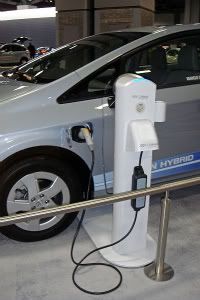Radio Talk Show on Renewables and Electric Transportation

Thanks for your inquiry about the radio show. Per your request, here is a short write-up of some preliminary ideas.
I believe I would simply make this an extension of the radio and television broadcasts – and live panel discussions – that I’ve done over the past few years. Folks ask me anything they care to about energy and transportation, normally pertaining to the many issues our civilization has with fossil fuels and internal combustion engines, and the cost/benefit of the different flavors of renewables and electric vehicles. (more…)









 When I was in San Francisco last week I dropped by to see GreenTechMedia’s Michael Kanellos, one of my favorite personalities in cleantech. Michael always seems to have a reason to smile, even when the rest of the world (me included) seems to hang its head and say “These Earthlings just don’t get it.”
When I was in San Francisco last week I dropped by to see GreenTechMedia’s Michael Kanellos, one of my favorite personalities in cleantech. Michael always seems to have a reason to smile, even when the rest of the world (me included) seems to hang its head and say “These Earthlings just don’t get it.”![[The Vector] Energy Leaders Weigh in on the Future — (Continued from earlier post)](https://www.2greenenergy.com/wp-content/uploads/2011/02/bloomberg-energy-efficiency-report-4-211x3001.jpg)